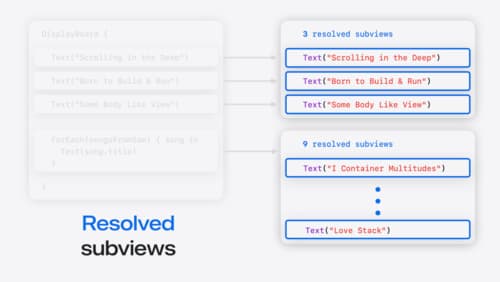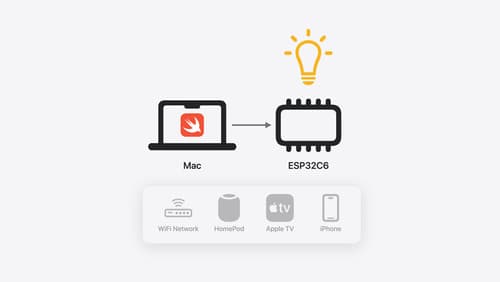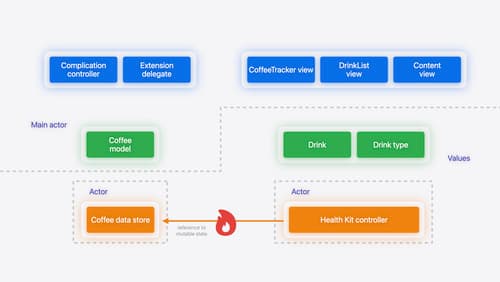how to declare bool number without using ExpressibleByBooleanLiteral
Asked on 2024-10-03
1 search
To declare a boolean number in Swift without using ExpressibleByBooleanLiteral, you can use an enum to represent boolean states. This approach allows you to define custom logic and associated values if needed. Here's a simple example:
enum BooleanState {
case on
case off
}
var state: BooleanState = .off
// Usage
state = .on
This method leverages Swift's powerful enum capabilities, allowing you to represent boolean-like states without directly using ExpressibleByBooleanLiteral. Enums in Swift can also have associated values, making them versatile for more complex scenarios.
For more information on using enums in Swift, you might find the session Go small with Embedded Swift helpful, where the use of Swift enums is discussed.

Demystify SwiftUI containers
Learn about the capabilities of SwiftUI container views and build a mental model for how subviews are managed by their containers. Leverage new APIs to build your own custom containers, create modifiers to customize container content, and give your containers that extra polish that helps your apps stand out.

Go small with Embedded Swift
Embedded Swift brings the safety and expressivity of Swift to constrained environments. Explore how Embedded Swift runs on a variety of microcontrollers through a demonstration using an off-the-shelf Matter device. Learn how the Embedded Swift subset packs the benefits of Swift into a tiny footprint with no runtime, and discover plenty of resources to start your own Embedded Swift adventure.

Migrate your app to Swift 6
Experience Swift 6 migration in action as we update an existing sample app. Learn how to migrate incrementally, module by module, and how the compiler helps you identify code that’s at risk of data races. Discover different techniques for ensuring clear isolation boundaries and eliminating concurrent access to shared mutable state.
